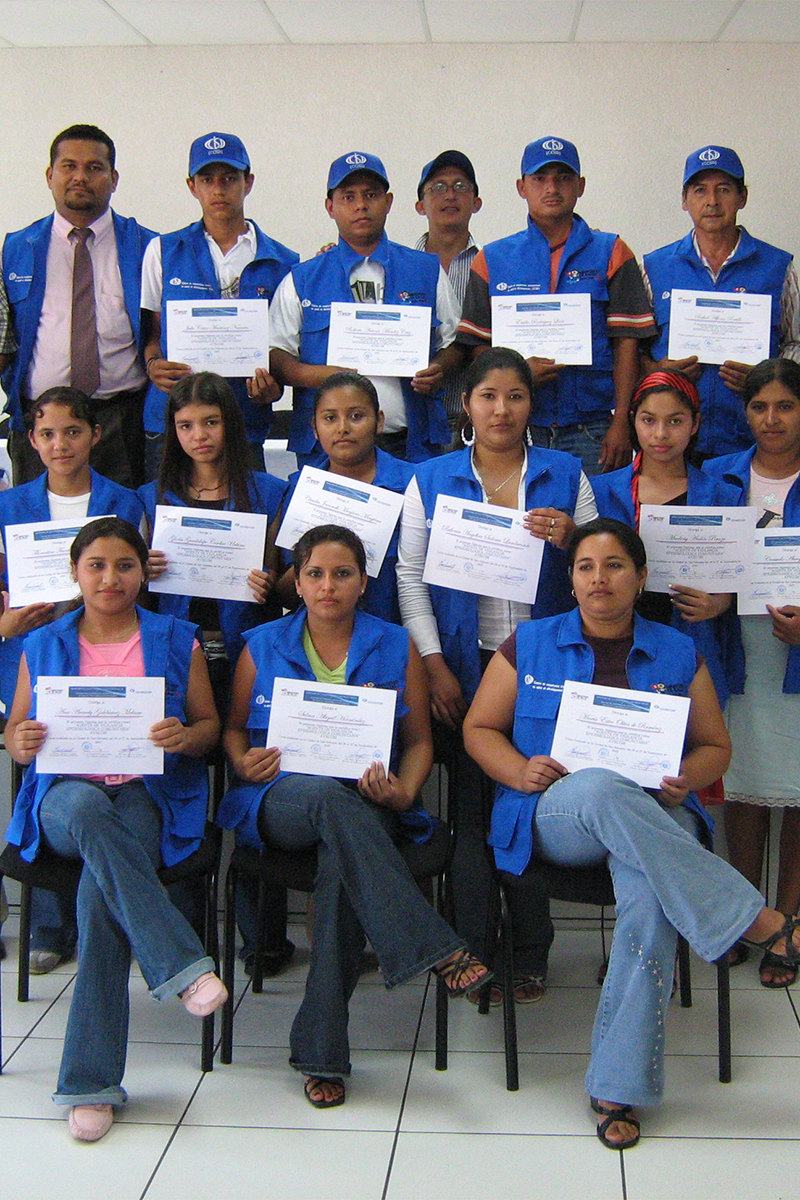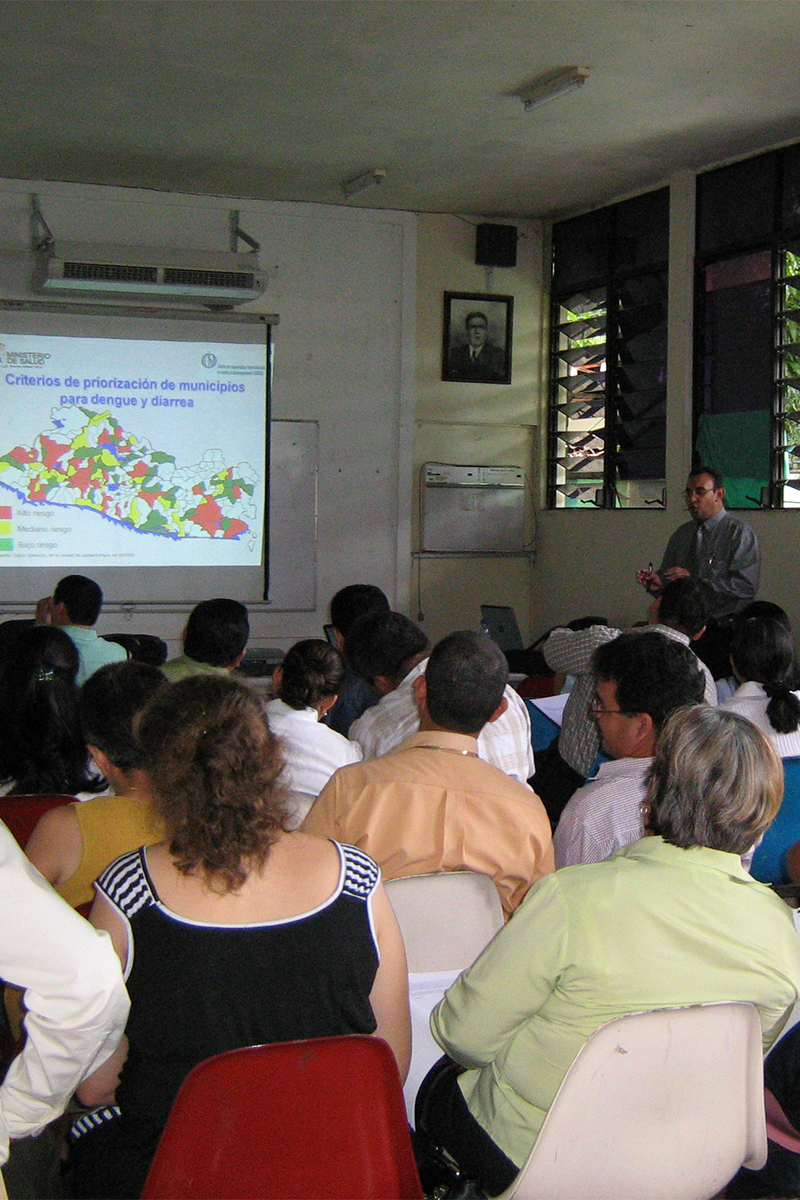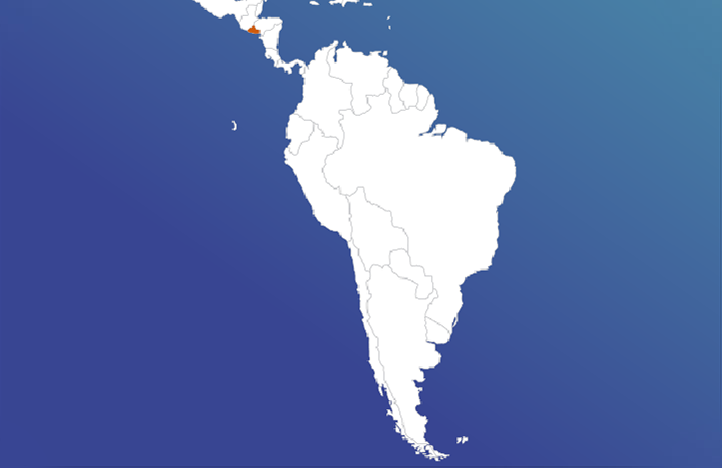Vebcom
Project to implement a community-based epidemiological surveillance system to control dengue and diarrhea in El Salvador
The VEBCOM project was designed to promote and reinforce community organization through a community-based surveillance and health information system. VEBCOM was run in conjunction with epidemiological interventions and controls for risk factors among populations living in diminished situations.
As well as being in line with the Salvadorian government’s development of a national policy for the reduction of poverty and inequities, VEBCOM complemented structures set up by the Ministry of Public Health and Social Assistance that were already supporting the country’s health unit staff.
The project backed community based training for epidemiological surveillance agents (referred to as AVECOMs). These agents are tasked with quickly connecting potential cases with the health system. At the same time, they work on prevention and advocacy to improve the rapid detection of sources of infection. The AVECOMs’ responsibilities included promoting prevention practices, checking water quality, and giving fumigation notifications to control dengue vectors.
The project concentrated efforts on zones with the highest prevalence of dengue and diarrhoeal diseases in each of the country’s five health regions.




